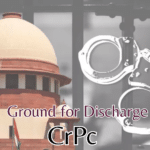Table of Contents
Initiating and Proceeding with a Commercial Suit
Authored By: Kanika Arora

Initiating and Proceeding with a Commercial Suit | BareLaw
Introduction
Foray into India’s commercial courtrooms typically requires an intricate approach. While demystifying the process, this guide aims to provide practical insights into some of the peculiarities of the Indian legal system and give actionable advice for those who are moving through commercial litigation. It is quite intimidating to deal with a lawsuit in courtroom especially if it is based on commercial disputes. As such, knowing how to initiate a commercial suit when you are faced by a breach of contract claim as a business person or unfair practices between shareholders is important. This guide opens up the intricacies revolving around litigations thus enabling you to make informed choices throughout.
Determining Your Case
a) Grounds for Suit: In order to determine your chances, it is crucial that one evaluates their case before resorting to courts. There are common reasons for instituting commercial suits such as:
Contract breaches: Non-payment, failure of service delivery or violation of terms.
Intellectual property infringement: Copyright, trademark or patent disputes.
Misrepresentation or fraud[1]: False or misleading information causing financial loss.
Unfair business practices: Restrictive agreements, predatory pricing or market manipulation.
b) Pre-Litigation Steps: Before filing a lawsuit consider alternative dispute resolution mechanisms like mediation and arbitration. They can be faster and cheaper than going through court with less animosity.
2. Initiating the Suit
a) Filing the Complaint: A complaint offers a detailed account of your claims, supporting evidence and what you want as outcome. Get an attorney who can draft for you precise and compelling complaint.
b) Serving the Defendant: The lawsuit begins when one party officially hands over copies of its complaint papers to another party against whom charges were filed on them via formal service techniques known as serving summons.
3. Pre-Trial Proceedings:
a) Discovery: Each side collects information from each other that may be helpful in resolving various issues in dispute through interrogatories depositions, document requests.
b) Motions: One of the parties may file a motion to dismiss the case, exclude evidence or seek a protective order.
c. Case Management: Conferences and deadlines are scheduled by the court for purposes of making the process more efficient.
4. Trial
a) Presentation of Evidence: Each party will present its case through witnesses, documents and opinions from experts in the subject matter.
b) Closing Arguments: Lawyers sum up their positions before urging the court to decide in their favor.
c) Verdict and Judgment: The judge or jury delivers a verdict that determines how all these parties will lose at law and liability if there are any damages involved in this lawsuit.
5. Post-Trial Processes:
a) Appeals: Either party can appeal the decision if they think that there were misjudgments on part of trial judges.
b) Enforcement: There might be a need for winning side to engage in certain enforcement activities designed to facilitate collection of awarded sums as damages in such cases.
c) Settlement: Parties could still reach settlement agreement at any point during the proceedings.
1. Decoding Indian Jurisdiction
*Navigating the Complexities of Legal Territoriality*
Success in commercial litigation calls for an understanding of jurisdictional complexities within India’s legal context.
*Navigating the Complexities of Legal Territoriality*
Success in commercial litigation calls for an understanding of jurisdictional complexities within India’s legal context.
2. Strategic Drafting of Pleadings
*Setting the Foundation for Legal Battle*
Drafting pleadings is no mean feat. This section discusses about intricacies surrounding drafting pleadings with reference to Indian legal framework’ considerations throughout it
3. Evidence Presentation in Indian Courts
*Mastering the Art of Legal Triumph*
Any legal battle is largely anchored on effective presentation of evidence. This segment provides insights into presenting evidence before courts based on India.
4. Procedural Efficiency in Indian Courts
*Streamlining the Legal Journey*
Efficiently managing procedural formalities is critical. Get specific procedures, applications and timelines that are followed within the Indian judiciary system.
5. Insights into Remedies under Indian Law:
*Making Sense of the Avenues for Relief in India*
Gain an extensive knowledge of commercial litigation remedies available within Indian legal system.
Case laws
Contract Disputes:
- Sahara India Real Estate Corp. Ltd. v. Securities and Exchange Board of India & Ors. (2012):[1]This case dealt with the principles that govern forum non conveniens, which allow parties to choose where they perceive their suit is best placed.
- Vijay Kumar Aggarwal v. State Bank of India (2019): On this note, Vijay Kumar Aggarwal v State Bank of India [2] focused on anticipatory breach of contract as well as the elements entailing claiming damages thereof.
- M/s Sipani Investments Ltd. v. M/s P.K.R. Constructions (P) Ltd. (2022): This case approached frustration of contract [3]on the backdrop of commercial disputes.
Intellectual Property
- McDonald’s Corp. v. Archies Ltd., 2003: By dint of this landmark decision, trademark infringement law in India was set henceforth; it also established a “likelihood of confusion” test.
- Tata Sons Ltd. v. Sabu Thomas (2021): Additionally, Tata Sons Ltd v Sabu Thomas stipulated employer rights in relation to employee inventions and significance of contracts in such instances.
- Super Cassette Industries Ltd., EMI Music France LTD., 2012: It involved copyright infringement vis-à-vis music industry with respect to justifiable use exemptions.
Corporate Governance
- Shapoorji Pallonji & Co.Ltd.v.Cyrus Investments Pvt.Ltd.(2018):[1] In this case, oppression against minority shareholders was addressed including various remedies under Indian law available for such circumstances.
- In re: Independent Media Trust & Ors.(2012):The role played by Company Law Board(now NCLT)in resolving internal disputes within a company was established in this case.
- Y.L. Kapur v. Punjab National Bank (2012): Duties of directors to shareholders were examined and the results of their breaches addressed by Y.L. Kapur v Punjab National Bank[4].
General Commercial Litigation
- Eversheds Sutherland International Legal Practice India v. M/s BHEL (2021): A controversial decision was made in this case, which clarified the procedure for enforcing foreign judgments on bilateral investment treaties in India.
- M/s M. Ramachandra Rao v. State of Andhra Pradesh(2002):[1]This case also highlighted that punitive damages are awarded in commercial disputes based on moral fitness.
- T. Chockalingam v.Union of India (1991): The right to speedy trial and procedural due process as a concept in Indian litigation were established by this landmark case.
Conclusion
To commence or continue a commercial suit, comprehension of the Indian judicial system and acquaintance with legal schemes are very important; it includes decoding jurisdictional intricacies, perfecting pleadings as per Indian laws, mastering evidence presentation techniques, managing proceedings efficiently, and exploring different remedies available etc., which will enable one to navigate through this complex landscape pertaining to commercial litigation in India as it might be seen from this book that is indispensable to practitioners who want to venture into it.Actually, involving oneself in a commercial suit may turn out being convoluted; therefore, although there is roadmap proffered here for guidance purposes, it remains essential that you consult an experienced advocate regarding the specifics of your matter so as not only to comprehend them fully but also enable you achieve favorable outcome(s) at all costs without any qualms.Today’s world demands good preparation that relies heavily upon effective communication skills coupled with strategic direction during trials because successful litigation requires thorough groundwork





